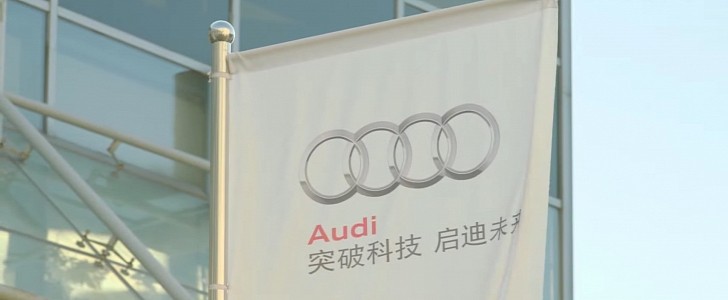As the world braces itself for a new industrial revolution, auto manufacturers are also shifting their products from ICE to EVs, cutting down on emissions. Audi is considering China, the most prominent automotive market, as a possible site for renewable sources.
China is a global leader when it comes to renewable energy production. The Asian giant is currently the world's largest solar and wind energy producer. It is also the biggest outbound and domestic investor in renewable energy.
Audi pledged to make its production network carbon-neutral by 2025. Both its Belgium and Hungary plants already have a net-zero footprint, Bloomberg reported.
Volkswagen AG's top earner is not the only automaker moving to green energy. Chinese automotive company Zhejiang Geely announced a two-year plan to install solar photovoltaic cells on all its plants' roofs to reduce its carbon footprint.
China pledged to be carbon neutral by 2060, encouraging businesses in all sectors to look for green power generation sources. Geely's plans fall in line with these goals.
Audi's plants in China produce 600,000 units out of the 1.8 million cars it makes in a year globally. Europe is fast tightening its regulations on new automobiles' green credentials, forcing manufacturers to step up and shift to electric platforms.
The German luxury car automaker is right in the EV game after launching the executive Audi e-tron GT that shares the same J1 platform as the Porsche Taycan, and the Q4 e-tron compact luxury crossover that rivals Tesla's Model Y.
According to Audi's chief financial officer, Juergen Rittersberg, China is a difficult market to predict when shifting to EVs slightly due to the availablity of renewable energy sources in its regions. He added that Audi might invest in green energy in some of those locations.
The automaker seems focused on the shift to electric vehicles, and betting on China's renewable energy sources is a strategic advantage over its rivals in a volatile market.
Audi pledged to make its production network carbon-neutral by 2025. Both its Belgium and Hungary plants already have a net-zero footprint, Bloomberg reported.
Volkswagen AG's top earner is not the only automaker moving to green energy. Chinese automotive company Zhejiang Geely announced a two-year plan to install solar photovoltaic cells on all its plants' roofs to reduce its carbon footprint.
China pledged to be carbon neutral by 2060, encouraging businesses in all sectors to look for green power generation sources. Geely's plans fall in line with these goals.
Audi's plants in China produce 600,000 units out of the 1.8 million cars it makes in a year globally. Europe is fast tightening its regulations on new automobiles' green credentials, forcing manufacturers to step up and shift to electric platforms.
The German luxury car automaker is right in the EV game after launching the executive Audi e-tron GT that shares the same J1 platform as the Porsche Taycan, and the Q4 e-tron compact luxury crossover that rivals Tesla's Model Y.
According to Audi's chief financial officer, Juergen Rittersberg, China is a difficult market to predict when shifting to EVs slightly due to the availablity of renewable energy sources in its regions. He added that Audi might invest in green energy in some of those locations.
The automaker seems focused on the shift to electric vehicles, and betting on China's renewable energy sources is a strategic advantage over its rivals in a volatile market.









